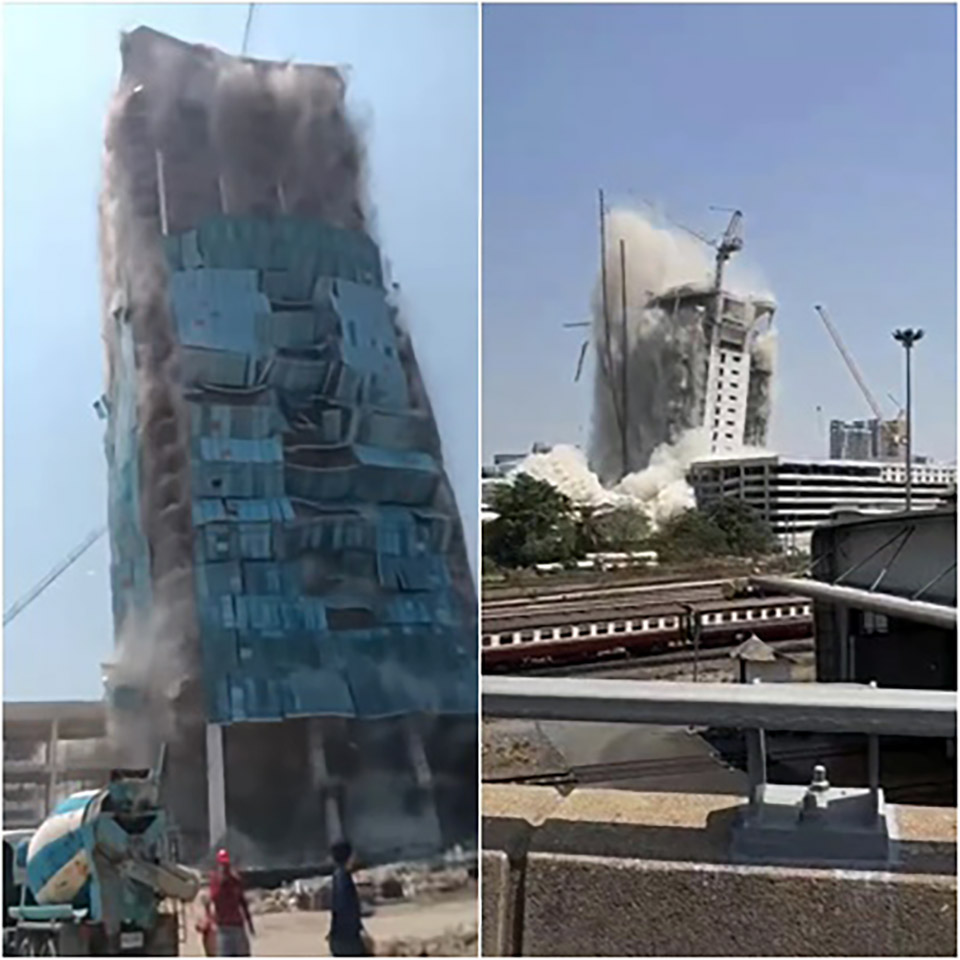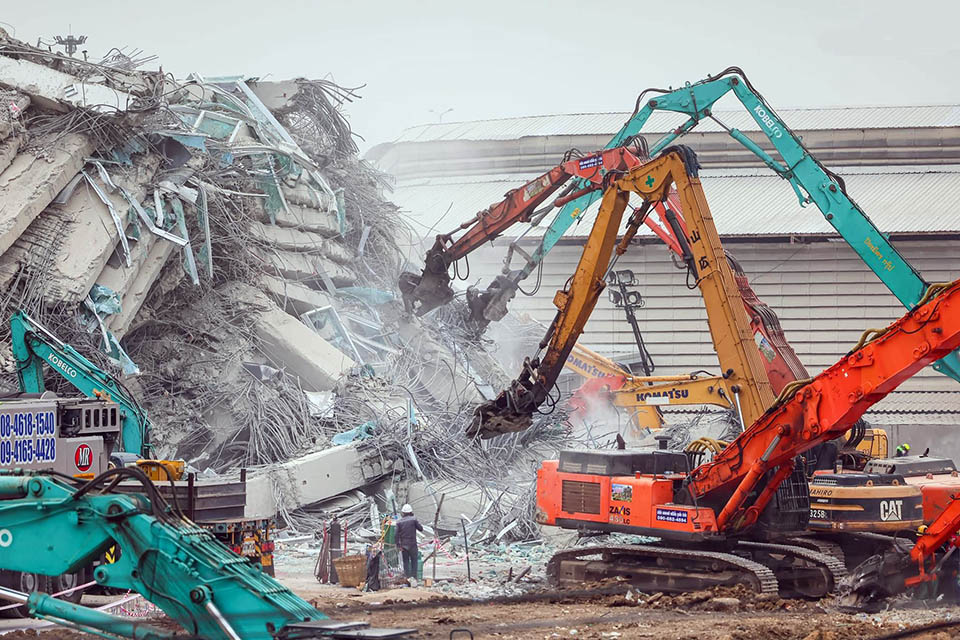
BANGKOK, Thailand – British media outlets began reporting on Saturday (March 29) regarding an investigation into a Chinese-backed construction company following the collapse of a 33-story building in Bangkok during Friday’s 7.7-magnitude earthquake that struck central Myanmar, approximately 1,200 kilometers away from Thailand’s capital. Experts believe that something must have gone seriously wrong with the construction.
The unfinished building collapsed entirely, sending thick clouds of dust into the air and trapping dozens of construction workers under the rubble. Despite the presence of a crane on top of the structure, no other under-construction buildings in the area experienced similar destruction, according to The Telegraph. So far, rescue teams have recovered eight bodies, while approximately 50 people remain missing.
Meanwhile, in Myanmar, the devastating earthquake has claimed the lives of more than 1,600 people, with the United States Geological Survey (USGS) warning that the death toll could exceed 10,000 as search and rescue efforts continue.
On Saturday (March 29), Thailand’s Deputy Prime Minister Anutin Charnvirakul visited the site and announced that the Thai government would conduct an urgent investigation to understand the cause of the disaster.
According to The Telegraph, Thai media reports indicate that the collapsed building belonged to the State Audit Office (SAO) and had been under construction for more than three years, with a total project cost exceeding 2 billion baht (approximately £45 million). The construction was carried out by a joint venture between Italian-Thai Development and China Railway No. 10 (Thailand).

Further investigation reveals that the largest stakeholder in the Chinese construction firm involved is China Railway No. 10 Engineering Group, a Chinese company that holds 49% of the shares—the maximum percentage that a foreign entity is legally allowed to own in a Thai company.
The Telegraph reported that they attempted to contact the company, but no one answered the calls. However, British media emphasized that there is still no concrete evidence of any wrongdoing. The Thai Ministry of Industry has dispatched investigation teams to inspect whether poor-quality steel or structural design flaws contributed to the collapse.
At the same time, some international engineering experts suggest that Bangkok’s soft clay soil combined with the flat slab construction method—where reinforced concrete slabs are directly supported by columns without using beams—could have amplified the earthquake’s impact, leading to the sudden collapse.
Rescue teams in Bangkok are battling the scorching 36°C heat in a race against time to reach trapped construction workers. Meanwhile, anxious family members and friends of the missing workers are gathering at the disaster site, desperately awaiting updates.
As public concern grows, more and more questions are being raised: How could this building collapse so quickly? Why did it fail while other structures remained intact? The investigation into these pressing issues is only just beginning.










